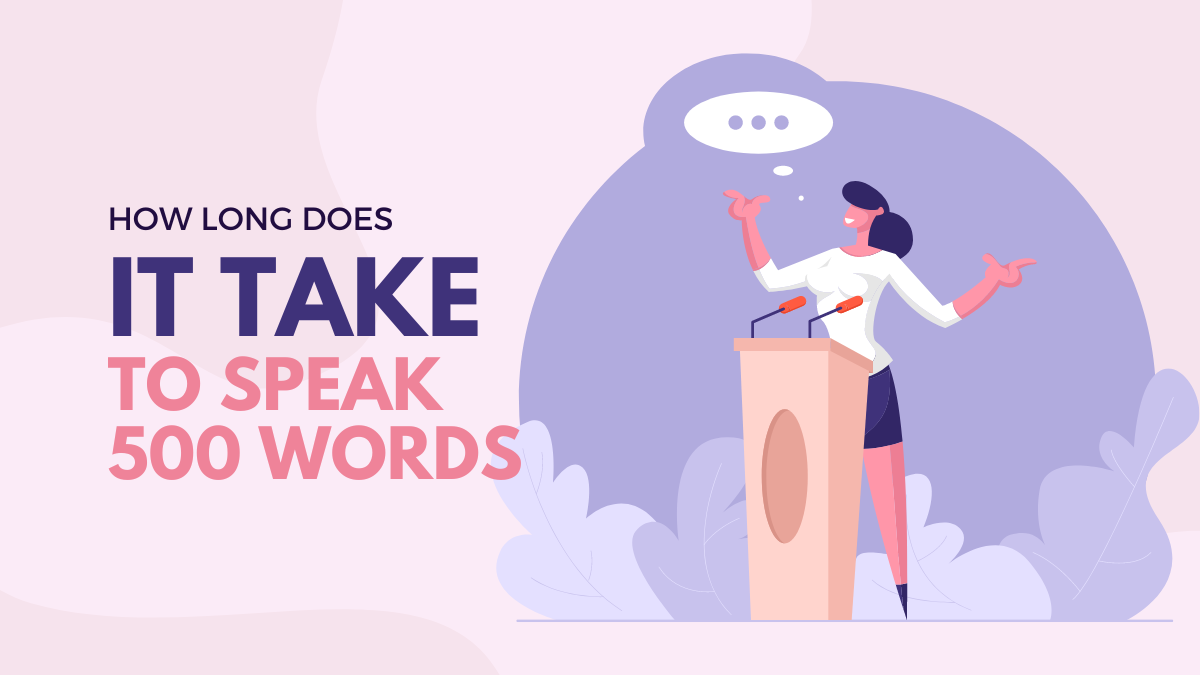IELTS is an English language exam that tests your proficiency in English in four modules,
- Listening
- Reading
- Writing
- Speaking
In these modules, speaking is considered the most challenging module because in this section students have to take a face-to-face interview.
But, students can easily get a good band score in IELTS speaking and make their speaking interesting easily.
They just have to use appropriate vocabulary and phrases for IELTS speaking with accurate pronunciation fluently.
So in this blog, we will provide you with important phrases that you can use in your speaking and get a good score in IELTS speaking.
But before that, you must know basic things about IELTS speaking.
IELTS Speaking
This is an important module of the IELTS exam and is like a face-to-face interview. The time duration for this section is 11 to 14 minutes and the examiner may ask you 8 to 10 questions in IELTS speaking.
There are three parts of IELTS speaking,
- Introduction
- Cue Card
- Follow-ups
In the introduction, the examiner will ask you introductive questions about yourself.
In cue-card, the examiner will give you a topic on which you have to speak for a minimum of 1.30 to 2 minutes. You will get 1 minute to prepare for the answer.
In follow-ups, the examiner will ask you some follow-ups that may be related to or not to your cue card.
Now let’s have a look at some important phrases for IELTS speaking, without wasting any more time.
If you want to learn tips to improve IELTS speaking, then you can read out our another blog on it.
What is an Idiom and Example?
Idioms are phrases that don’t mean what they say literally. Instead, they mean something else. For instance, “kick the bucket” means to die, even though it means to kick a bucket.
Idioms are common in everyday speech and writing, and they can make our language more colorful and exciting. But they can also be hard to understand for people who aren’t used to them.
Here is an example of idiom phrases of English routine words so take a look below:
| Idiom | Meaning | Example Sentence |
| Bury the hatchet | To make peace or resolve a conflict | After years of feuding, the two neighbors finally buried the hatchet. |
| Piece of cake | Something easy or effortless | Don’t worry about the test; it’s a piece of cake for you. |
| Hit the nail on the head | To be exactly right or accurate | The detective hit the nail on the head with his conclusion. |
| Cry over spilled milk | To be upset about something that cannot be changed | Stop crying over spilled milk; there’s nothing we can do now. |
| Bite the bullet | To face a difficult situation with courage | The athlete decided to bite the bullet and compete despite the injury. |
| Break the ice | To initiate a conversation or activity in a group | He told a joke to break the ice at the start of the party. |
| Butterflies in the stomach | Nervous or anxious feeling | Before her speech, she had butterflies in her stomach. |
| Let the cat out of the bag | To reveal a secret | He accidentally let the cat out of the bag about the surprise party. |
| It’s raining cats and dogs | Heavy rain or a downpour | We can’t go outside; it’s been raining cats and dogs all day. |
| Kick the bucket | To die | He kicked the bucket at the age of 95. |
Here are some idiom examples:
“kick the bucket” means to die. “a piece of cake” means something very easy to do. “see eye to eye” means to agree with someone. “pull the wool over someone’s eyes” means to trick someone. “let the cat out of the bag” means to tell a secret.
Pay attention to how phrases are used in a sentence. This will help you figure out what they mean in a symbolic sense.
Use a book or a website to look up idioms. This will tell you both what the words mean in a direct sense and what they mean figuratively.
Try to use idioms in your work and speech. This will help you get to know them better and use them correctly.
What is a Phrasal Verb?
A phrasal verb comprises a verb and a word that means “and.” It can be a word, a preposition, or a gerund. The verb and particle together mean something different than what the word means by itself. For instance, the phrase “give up” means to stop trying, even though the word “give” means to give something to someone else.
Phrasal verbs are popular in everyday English and can be used in many ways. But they can also be hard to understand for people who aren’t used to them.
Here are some examples of idiomatic expressions:
stop trying = give up
look up means to look in a dictionary or other book for facts.
turn down means to say no, put off means to put off, and run away means to get away.
Phrases for IELTS Speaking that you must know
There are so many phrases for IELTS speaking that an aspirant should practice ahead of time. If you are aiming for band 9, you should know these phrases. Here are Some of the common phrases for IELTS speaking test:
- That’s an interesting question – This is the most commonly used phrase, and this helps you to take more time to think carefully about your answer. Make sure to highlight the word interesting and do not say it too fast.
- Well, that depends on a few things– This is one of the useful phrases for IELTS speaking and can be used when there is a complex question. You can easily kill a time by slowly starting this phrase and can get yourself 3-4 secs more for thinking about your answer. Take your time when you say things.
- I haven’t thought much about it, but I would say – Another easy-to-use phrase, aids that you haven’t spent much time considering the answer and need some more time before answering. Put more stress on ‘much and really’ and you can get yourself 6-8 secs before answering, also it is a long phrase where you can take more time.
- Funny you should ask that – Here the word ‘funny’ indicates an interesting coincidence. This phrase is only suitable if you get a question on a topic that you have been just thinking about. You should use this phrase carefully.
- Looking back, I would say it – Is suitable when the question being asked reflects on your past or thinking about any past incident. It’s another gem of a phrase.
A question-answer example is a must for this condition. Suppose you get a question- Did you enjoy your swimming classes lessons? The answer will be looking back, I would say yes, it was very fun and I enjoyed it well.
| Category | Phrases | Example Sentence |
| Agreeing | I agree. | “I agree that recycling is essential for the environment.” |
| Disagreeing | I’m afraid I have to disagree. | “I’m afraid I must disagree with your opinion on this matter.” |
| Expressing opinion | In my opinion | “In my opinion, social media has both positive and negative effects.” |
| Giving examples | For instance | “For instance, countries like Sweden have successfully implemented renewable energy policies.” |
| Explaining consequences | As a result | “As a result of the economic crisis, unemployment rates increased significantly.” |
| Making comparisons | Similarly | “Similarly, both authors explore themes of love and loss in their novels.” |
| Describing trends | There has been a noticeable increase in | “There has been a noticeable increase in the use of smartphones worldwide.” |
| Summarizing | In conclusion | “In conclusion, the study highlights the importance of regular exercise for overall health.” |
- Find my feet – It means steadily attaining comfort and acquainting doing any activity or task. example – took some time to find my feet in this new country where the lifestyle was completely different.
- Cost an arm and a leg – A really expensive thing you work very hard for i.e. The shoes look classy but they cost her an arm and a leg.
- Burn the midnight oil – When you stay up late into the night for getting some work done. For example – You will have to burn the midnight oil to prepare for the test by tomorrow.
- Over the moon – A phrase that means being admired. An example- She was over the moon when he proposed to her.
- Call it a day – Ending something for the night or day. An example- While I loved exploring the whole city, I think it is time for me to call it a day.
- Right off the top of my head – The phrase means expressing something without thinking too much or going deep into it. An example- Right off the top of my head, they both are couples.
- Down in the dumps – Sorrowful. For example- He is a bit down in the dumps since she failed her Biology test.
- Chill out – Being Peaceful and comfortable. An example- Despite countless obstacles, Udit told his employees to chill out and get the work done by tomorrow.
- Put/Putting all your eggs in one case – It means putting all your attempts, assets, and your ambition into a single place or thing. For example – Don’t put all your eggs in one basket make sure you apply to all the companies looking for web developers.
- Fed up with – It specifies being displeased, irritated, or annoyed. An example is- The teacher is fed up with us today, do not provoke him too much.
- Once in a Blue Moon – Something occurring very rarely. An instance – I’m very cautious about what I eat so it’s only once in a blue moon I eat junk food.
- Miss the boat or bus – An opportunity is being missed. For example – There were movie tickets available last week, but she missed the boat by waiting till today to try to buy them.
- White elephant – A investment or a purchase done on something which turns out to be costly or unprofitable, also too expensive and big to maintain regularly. For example, when he bought the new house he didn’t know it was going to be such a white elephant.
- A drop in the ocean– Something which is so small that it does not make an important role or difference or have much effect. For example, they need to raise crores of rupees for this project, so our lakhs of donation is just a drop in the ocean.
- Bump into– Meeting someone you know by chance. An example – I did not expect to bump into my childhood crush at the restaurant.
- The in-thing– Something that is fashionable at the moment. An example- The new iPhone 14 is the in thing currently.
- Work flat out – Work hard for some work to be done. An example would be The students who have worked flat out for completing their thesis on time.
- Run of the mill-It means a thing or person ordinary or average, with no interesting or special features. An example will be oppo smartphones are run-of-the-mill nowadays.
- Make a fuss over – To pay a lot of attention to someone or something or a caring excessively. Do things to make them comfortable or happy. For example, Father makes a fuss over all of us when he comes back from his international trips.
- Far-Fetched– Something difficult to believe and not likely to be true, or unrealistic. An example would be when he told us the stories of her childhood, everyone there could agree that they were far-fetched.
- A hot potato– A controversial topic or a problem that is hard to deal with and causes a lot of trouble. For example- The abortion matter is a political hot potato in the United States.
- Ace/Acing– Doing well or winning a victory or competition. I aced my Math paper this term. You can also go with an example like- She is an ace Swimmer.
- Bent out of shape– Being upset or becoming very angry. For example- No, I’m not getting bent out of shape because People don’t respect my opinion, I’m used to it.
- Get a kick out of– This means to feel excited to be amused or pleasure from something. To like or enjoy something. An example could be You’re getting a kick out of that new Rolex watch, aren’t you?
- As a matter of fact – used to present a fact or truth. For example, As a matter of fact, research has shown that regular exercise can improve mental health.
- It goes without saying – used to express something that is obvious or self-evident. For example, It goes without saying that English is a widely spoken language around the world.
- To put it simply – used to express something in a clear and concise way. For example, To put it simply, the main goal of education is to help people learn and grow.
- As far as I’m concerned – used to express one’s personal opinion or perspective For example, As far as I’m concerned, traveling is one of the best ways to learn about different cultures.
- In the long run – used to express something that will have an effect over a long period of time. For example, In the long run, making healthy lifestyle choices can help prevent chronic diseases.
- By and large – used to express a general statement or overall assessment. For example, By and large, I think that people are kind and generous.
- In essence – used to express the fundamental nature or core of something. For example, In essence, the book is a meditation on the nature of human existence.
The Do’s and Don’ts of the use of Phrases For IELTS Speaking Tests
While using the phrases for IELTS speaking you have to make sure that to sound as natural as they can be, just like how native speakers use them. You don’t use them just for the sake of using them, using these phrases for IELTS speaking can be quite tricky. Put them in only when the discussion calls for it.
Below are some things you need to remember when using the different phrases for IELTS speaking and expressions:
DO’S
- Use them naturally as much as you can. You need to let the examiner know that you can engage in conversation with a native speaker in real life.
- Be particular about when to use and apply the different expressions and phrases in your talk. Not using them properly can affect the messages you are trying to convey.
- Use variations of the different phrases. The examiner shouldn’t think you only know a limited no. Of phrases and don’t have enough knowledge of them if you stick to Less than three to four phrases.
DONT’S
- When you are being asked simple questions about yourself and your life don’t use formal phrases.
- Do not try to show off your grammar or vocabulary. Use only what is necessary for the conversation.
- Don’t use more than two phrases in simple sentences. This will lose the meaning of your answer.
Conclusion (Phrases for IELTS speaking)
Thank you for reading! So, these are the phrases for IELTS speaking. We hope that these phrases for IELTS speaking have helped you to prepare for the IELTS speaking test and that you feel more confident before taking the test.
There are many topics that you can speak on in the IELTS exam but if you are short of ideas, then you can use these 30 phrases for IELTS speaking test and you are sure to get a good score on it.
If you have any questions or concerns, please feel free to contact us anytime at CourseMentor™. Thank you again for reading and we hope to see you again next week!
FAQs (Phrases for IELTS speaking)
how to improve vocabulary for ielts speaking
1. Write the definition.
2. Put the word into a sentence to contextualise it.
3. Check what the word form is – noun, adjective, verb, adverb etc.
4. What other word forms are connected to it? …
5. Look for synonyms/antonyms (use a good thesaurus).
6. Look for collocations.
What are the best words for IELTS speaking?
1. Awesome
2. Awful
3. Barely
4. Blonde
5. Certainly
6. Combat
7. Debate
8. Disclose





